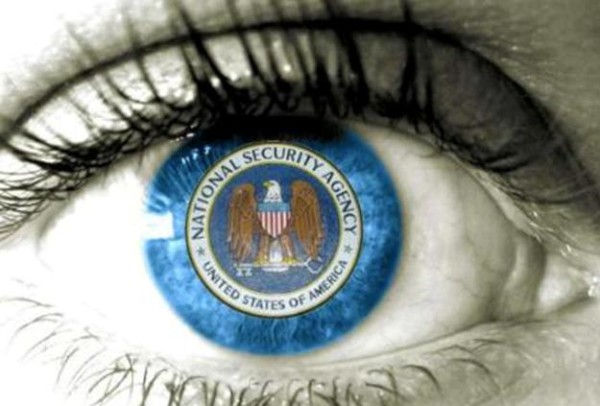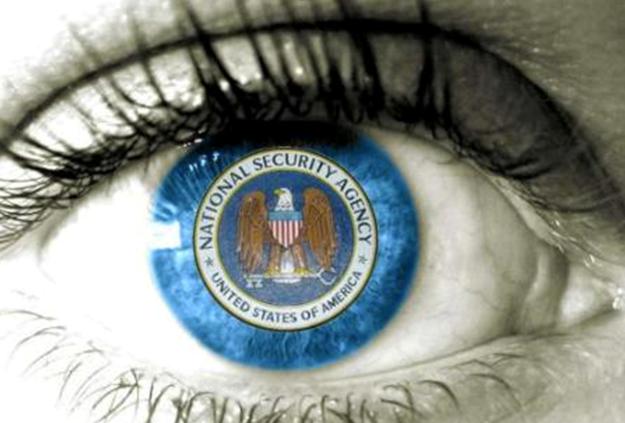 The first step towards regaining some semblance of privacy took place on May 7, when the U.S. Federal Appeals Court deemed the National Security Agency’s (NSA) bulk collection of telephone data illegitimate under federal law. Congress will next decide, on June 1st, whether to end, reauthorize, or modify, the most contentious proposition of the U.S. Patriot Act. Since Former President George W. Bush signed the bill into law, Title II of the U.S. Patriot Act, subtitled “Enhanced Surveillance Procedures,” has been wrought with controversy and shrouded in secrecy for the past fourteen years. Indeed, the Bush Administration interpreted Section 215 of Title II, in particular, as simply authorizing the bulk collection of “telephony metadata.” In light of the court ruling, a new bill – the U.S.A. Freedom Act – aims to rein in Section 215, and has been gaining more traction in Congress. Yet the bill does not go far enough to safeguard civil liberties of U.S. citizens and does absolutely nothing for non-citizens. In fact, the U.S.A. Freedom Act also sufficiently fails to not only end mass surveillance, but also falls short of protecting civil liberties for citizens and non-citizens. In the wake of these shortcomings, the Vendetta, therefore, is determining the proper balance between protecting Americans from domestic and foreign threats, while protecting American civil liberties.
The first step towards regaining some semblance of privacy took place on May 7, when the U.S. Federal Appeals Court deemed the National Security Agency’s (NSA) bulk collection of telephone data illegitimate under federal law. Congress will next decide, on June 1st, whether to end, reauthorize, or modify, the most contentious proposition of the U.S. Patriot Act. Since Former President George W. Bush signed the bill into law, Title II of the U.S. Patriot Act, subtitled “Enhanced Surveillance Procedures,” has been wrought with controversy and shrouded in secrecy for the past fourteen years. Indeed, the Bush Administration interpreted Section 215 of Title II, in particular, as simply authorizing the bulk collection of “telephony metadata.” In light of the court ruling, a new bill – the U.S.A. Freedom Act – aims to rein in Section 215, and has been gaining more traction in Congress. Yet the bill does not go far enough to safeguard civil liberties of U.S. citizens and does absolutely nothing for non-citizens. In fact, the U.S.A. Freedom Act also sufficiently fails to not only end mass surveillance, but also falls short of protecting civil liberties for citizens and non-citizens. In the wake of these shortcomings, the Vendetta, therefore, is determining the proper balance between protecting Americans from domestic and foreign threats, while protecting American civil liberties.
Section 215, although initially intended to strengthen domestic security and prevent future terrorist attacks against the U.S., gained quite notoriety after former CIA systems administrator Edward Snowden revealed the extent of its power in a 2013 documentary. [ref]“NSA collecting phone records of millions of Verizon customers daily,” The Guardian, June 6, 2013, http://www.theguardian.com/world/2013/jun/06/nsa-phone-records-verizon-court-order[/ref] Often referred as the “Library Records Provision,” the mere language of Section 215 has been understood to permit the collection of personal items, or “tangible things,” such as books, telephone records, documents, and “other items,” that are considered “relevant” to “an authorized investigation.” This explanation has empowered the government to usurp the telephone records of every single American, while providing immunity for participating telecommunication companies, entirely in secrecy.
Proponents of the current interpretation argue the provision ensures the safety of its citizens, by equipping “federal law enforcement and intelligence officials with the tools they need to mount an effective, coordinated campaign” against our nation’s terrorist enemies.[ref]“Report From The Field: The USA PATRIOT Act At Work,” U.S. Department of Justice, July 2004, http://www.justice.gov/archive/olp/pdf/patriot_report_from_the_field0704.pdf[/ref] Moreover, Proponents claim that any modifications, via the proposed U.S.A. Freedom Act, will greatly reduce the government’s ability to root out suspected terrorists.[ref]Ibid.[/ref] While revoking bulk collection will remove, according to the NSA Former Head General Keith Alexander, “the whole haystack” of data to sift through, the value of data is still questionable at best. Nearly every terrorist attack in the Western world has been committed by individuals already known by law enforcement[ref] “The Whole Haystack,” The New Yorker, January 26, 2015, http://www.newyorker.com/magazine/2015/01/26/whole-haystack [/ref]. Even the White House’s own Privacy and Civil Liberties Oversight Board concluded that bulk collection has not contributed to efforts in preventing terrorism. Indeed, the board stated that they had “not identified a single instance involving a threat to the United States in which [Section 215] made a concrete difference in the outcome of a counter-terrorism investigation,” and called for the end of the illegal activity.[ref] “Independent review board says NSA phone data program is illegal and should end,” The Washington Post, January 23, 2014, http://www.washingtonpost.com/world/national-security/independent-review-board-says-nsa-phone-data-program-is-illegal-and-should-end/2014/01/22/4cebd470-83dd-11e3-bbe5-6a2a3141e3a9_story.html[/ref]
Opposition groups against the current interpretation of Section 215 include the American Civil Liberties Union (ACLU), who co-author of the bill, along with the White House Oversight Committee, and now the Federal Appeals Court. Arguments range from civil rights infringements by the vast expansion of government’s ability to spy on its own citizens to the lack of federal authority. But the coalition is divided on the effectiveness regarding the U.S.A. Freedom Act. The New York Times Editorial Board published a scathing piece on the U.S.A. Freedom Act in its current iteration, arguing the “bill does not end the bulk collection of surveillance data,” but simply “limits those operations” – those very operations that have been ruled to be illegal and ineffective. While the ACLU has yet to adopt a position on the bill, Deputy Legal Director Jameel Jaffer has stated his preference for allowing Section 215 to expire. [ref]“More Excuses on the Patriot Act,” The New York Times, May 1, 2015, http://nytimes.com/2015/05/02/opinion/more-excuses-on-the-patriot-act.html[/ref] All in all, as conformed by the White House, the end of Section 215 ensures the end of mass bulk telecommunication data collection. [ref]“White House Confirms: If Section 215 Expires, So Does Bulk Phone Records Collection,” Electronic Frontier Foundation, March 24, 2015, https://www.eff.org/deeplinks/2015/03/white-house-confirms-if-section-215-expires-so-does-bulk-phone-records-collection[/ref] Not only is this important to safeguard American civil rights and privacy, but perhaps most importantly, it is also the correct step forward to end U.S. governmental spying on citizens and non-U.S. citizens.
Take Action:
Fight 215 is a coalition of civil-rights, technology, and political groups that have joined forces to campaign against Section 215 in 2015. The process is easy – provide a phone number to the website, and Fight 215 will instantly connect to a locally elected representative. Highlight the importance of this issue to the congressperson, and demand the restoration of privacy for all citizens and non-citizens.




